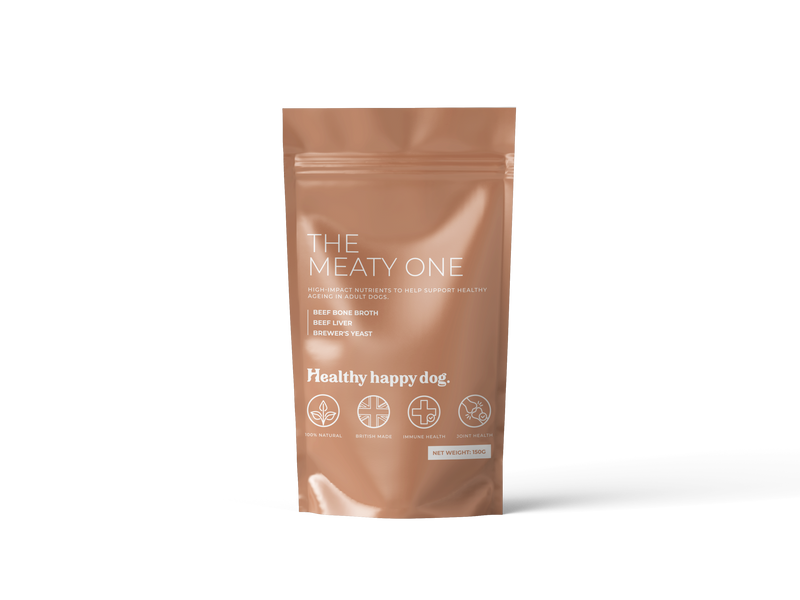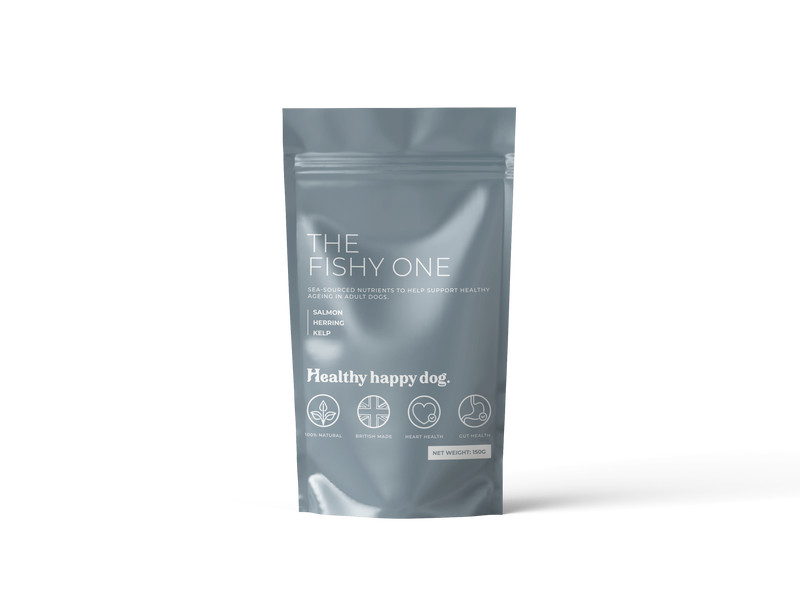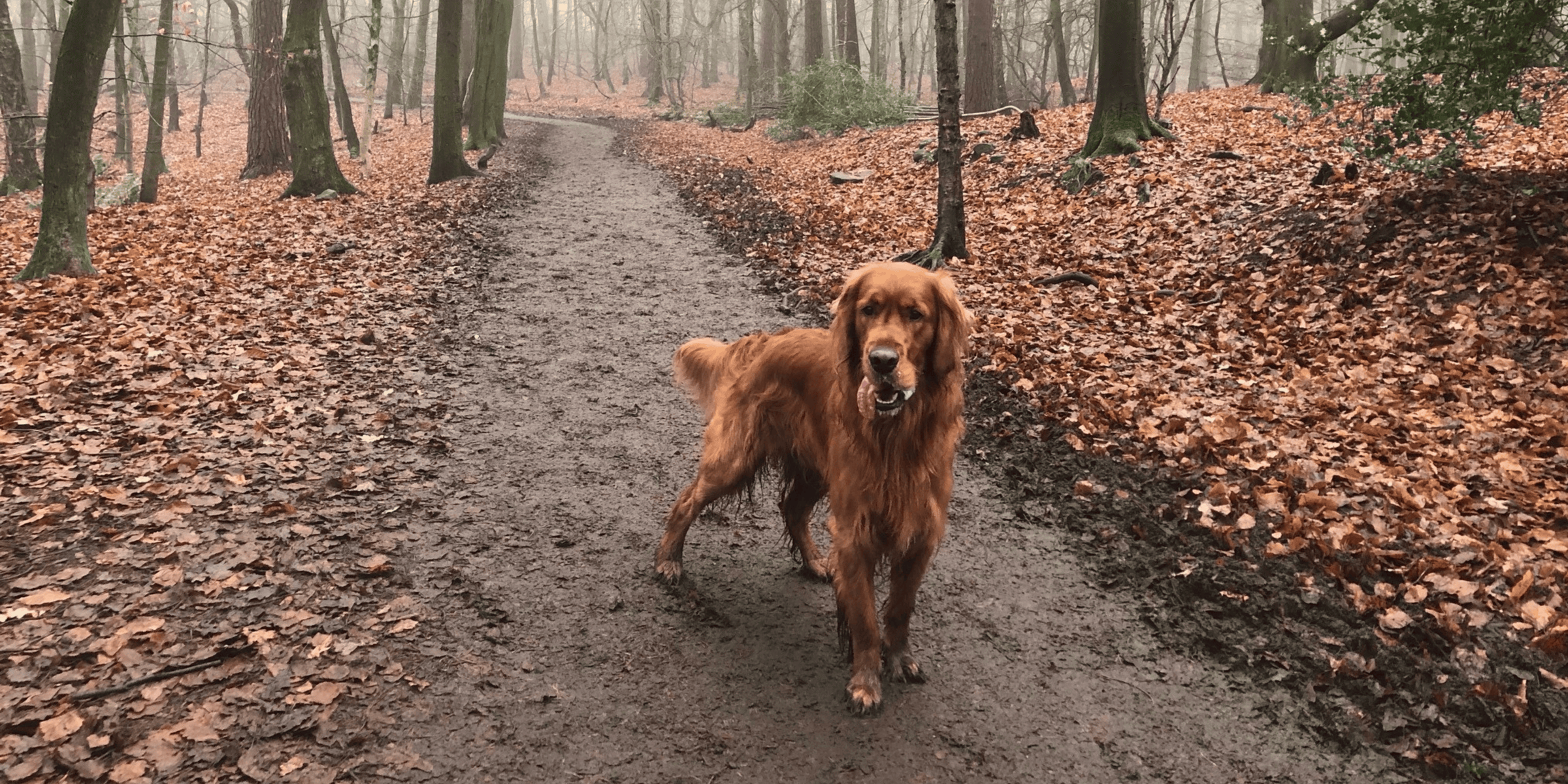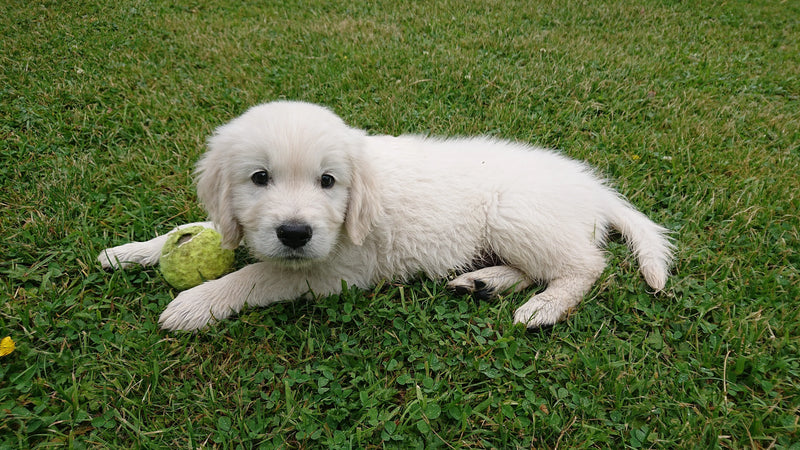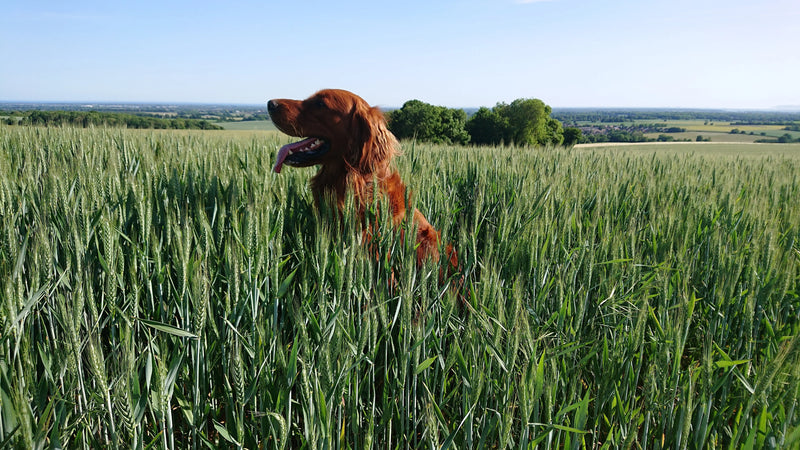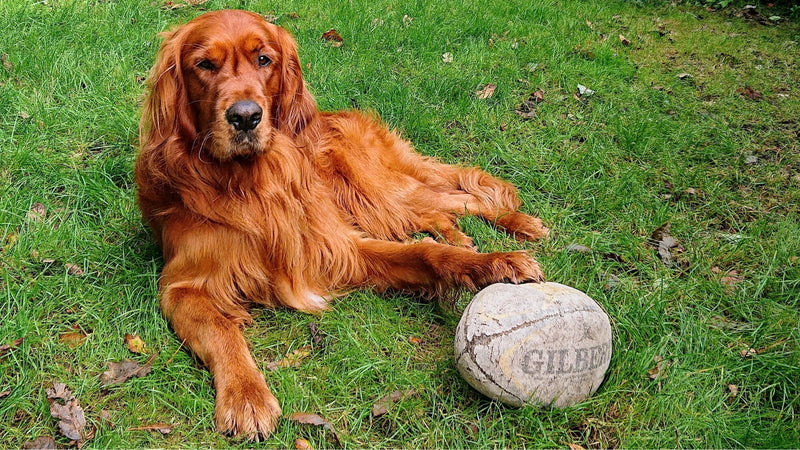Healthy Happy Dog was created with one simple aim: to help dogs live healthy, happy lives for longer.
Our supplements are built around that goal and made from real, research-backed ingredients to gently support your dog’s health, day by day, as they age.
Each supplement in our range brings together a small number of carefully chosen whole food ingredients – like broccoli, salmon, beef liver and medicinal mushrooms – selected for their proven benefits in multiple areas of canine health. From joints and digestion to brain health, immunity and energy, our focus is on overall wellbeing and resilience.
Our approach is about providing dogs with additional nutrients from real ingredients that help them stay strong, sharp and active.
As with anything health related, for us or our dogs, the best time to start is today. Just a small scoop, once a day, added to your dog’s usual food. Simple, flexible, and easy to stick with.
More time. More love.
That’s the whole point.


